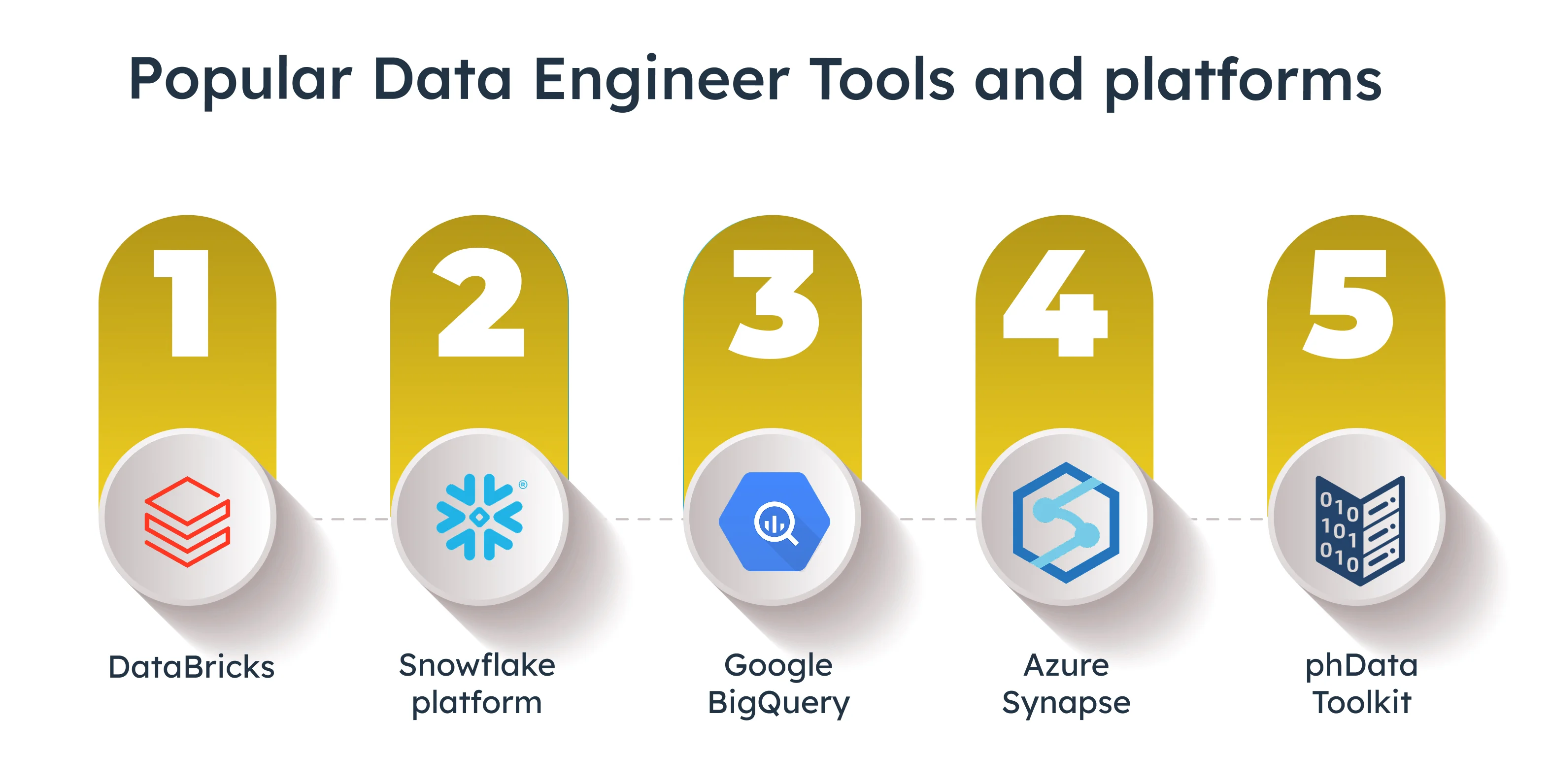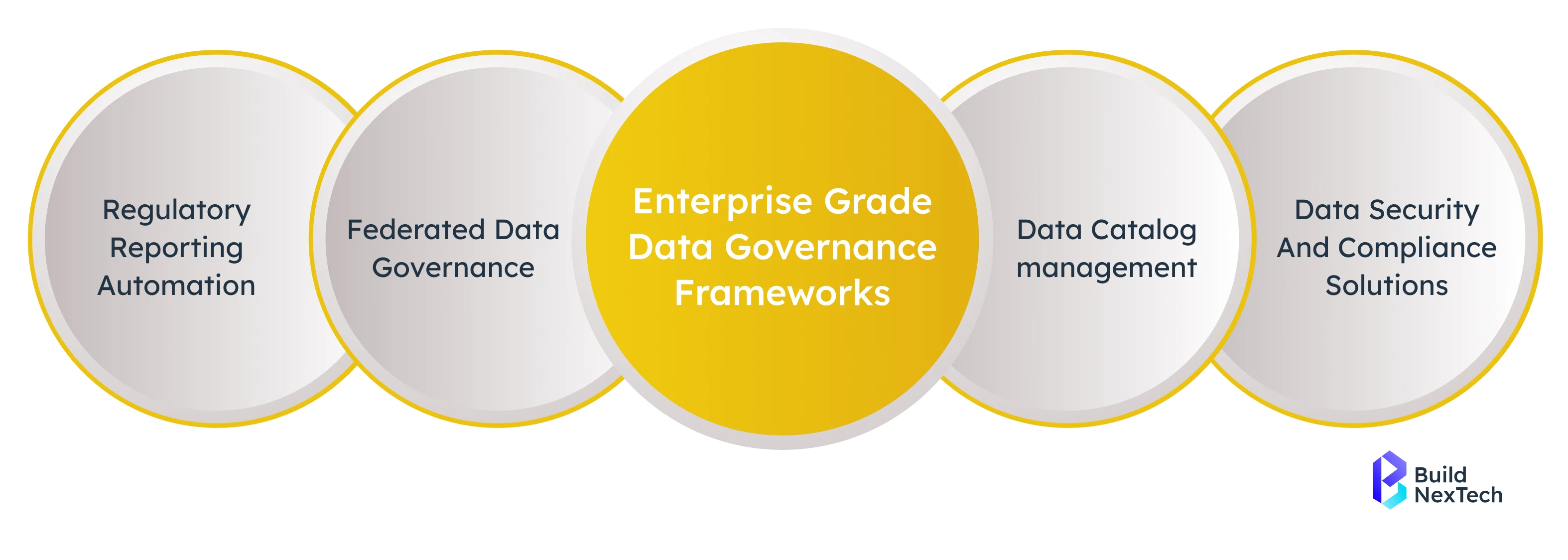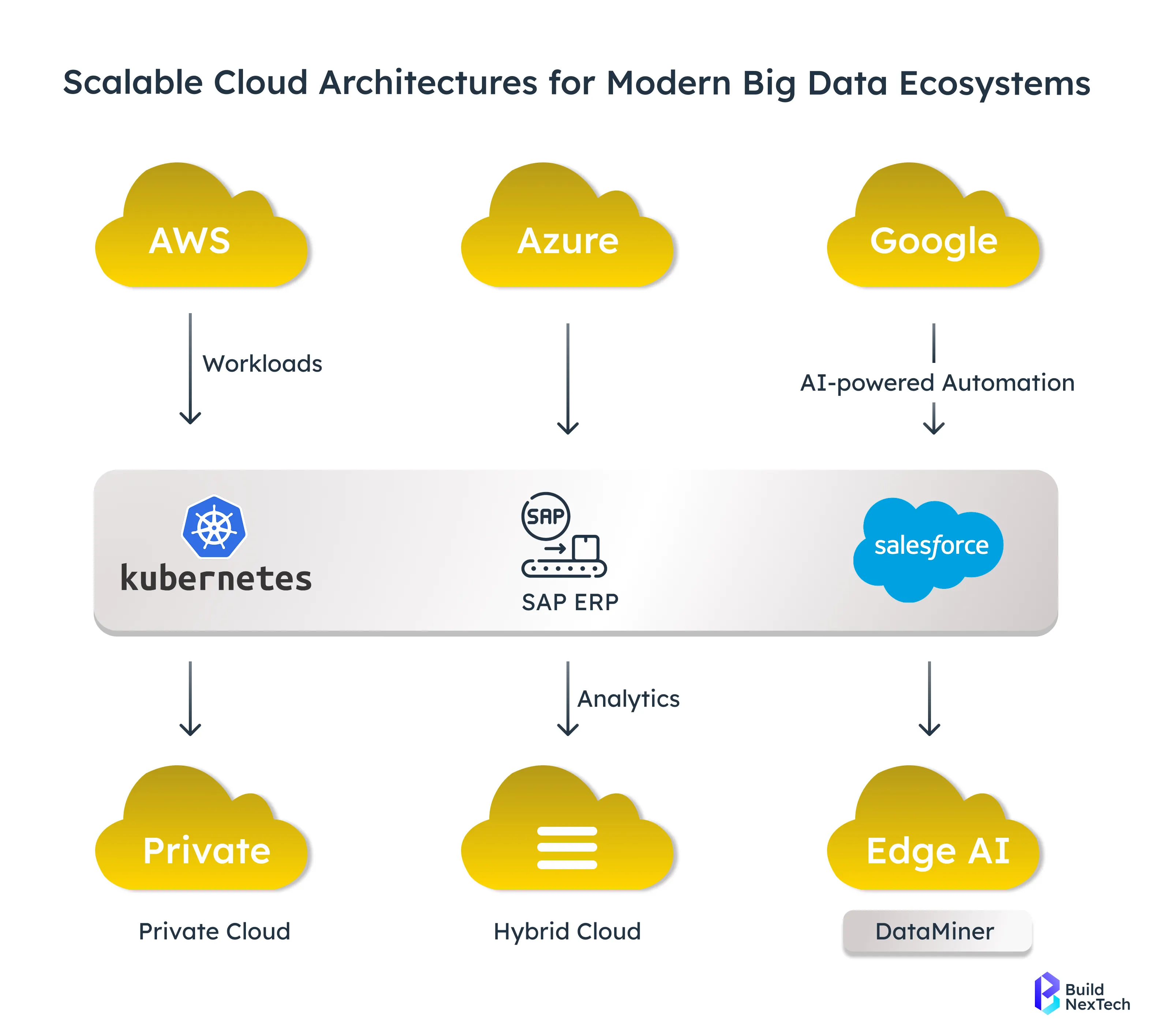In today's digital economy, businesses produce large amounts of data. This data originates from various sources, including applications, cloud apps, IoT devices, mobile apps, and distributed data solutions. The data can be structured, semi-structured, or unstructured. However, to secure and activate that data for real business impact, you need more than the traditional approach to analytics.
It requires clear Data Engineering, a comprehensive data infrastructure, and a modern Data Platform. This platform must support growth and governance over time. Organizations are accelerating in their digital changes. The move toward data operations that are safe, trusted, and ready for the future will continue.
Modern organizations make decisions based on data. They also use business intelligence, machine learning, and automated analytics workflows. If you want to improve customer experience, reduce operational risk, or use AI features, you must build secure, controlled, and high-quality data pipelines. These pipelines should come from trusted sources.
More organizations in healthcare, insurance, finance, and digital businesses are paying for Managed Data Engineering Services. They do this to support safe and scalable growth.
Key Takeaways
- Managed Data Engineering delivers secure, scalable data architectures that outperform traditional in-house approaches.
- High-quality, governed, real-time data enables stronger analytics, AI, and data driven decision making.
- Cloud expertise and seamless migration across Snowflake, Data bricks, BigQuery, Azure Synapse, and Redshift accelerate modernization.
- Scalable, flexible architectures support growing data needs while reducing operational overhead.
- Real-world use cases show measurable business impact, from fraud detection to Customer 360 and advanced BI.
Why Businesses Need Managed Data Engineering for Secure Growth
The current state of business is influenced by real-time analytics capabilities, cloud-first architectures, and complicated regulatory pressures. Managed Data Engineering gives organizations the tools, governance, and processing frameworks to use all their data. Managed Data Engineering does this without putting too much work on the organization's staff.
The organization can use an outsourcing model for data engineering. This lets experts handle the data engineering process. The organization can then focus on innovation, improving customer success, and optimizing key data processes. The experts will manage pipelines, governance, and data engineering tasks.
The Rising Importance of Secure, Reliable Data Operations
Organizations now get data from many sources. These include CRM systems, ERP systems, IoT sensors, mobile apps, social media, and external APIs. With the increase of data sources, it is more critical than ever for organizations to trust and secure their data. A single problem in a data delivery pipeline or a data lake can stop projects that rely on analytics platforms, Data Hubs, AI and Analytics models, and KPI dashboards.
Today's organizations have specific needs:
- A single solution for enterprise data security and continuous compliance with frameworks such as PCI DSS
- A single solution for oversight of data quality, data observability, and automated governance processes
- On-demand and continuous processing of cloud data center infrastructure to support scalable workloads
- Real-time reporting and analytics to observe shifts in customer satisfaction and market initiatives
Without a discreet set of pipelines that are well designed and governed, no improvements to events and customer experiences become durable.
Why Managed Data Engineering Outperforms Traditional In-House Setups
Internal data teams often have limited resources, old systems, talent shortages, and more operational complexity. In contrast, managed private cloud environments, cloud managed service providers, and data engineering platforms provide:
- On-demand scalability and cloud architecture expertise
- Advanced ETL/ELT processes, ETL accelerators
- Data Transformation Automation and Data Maturity Assessment
- Access to specialized skills in the Snowflake platform, DataBricks, Google BigQuery, AWS Glue, Azure Synapse, and Amazon Redshift
Managed Data Engineering helps organizations grow and work efficiently at a large scale. It does this without the costs and complexity of building everything in-house.
Understanding Modern Data Engineering
Current data engineering is the core to all Modern Data Platforms for the secure ingestion, storage, transformation, and activation of enterprise data. Data engineering is at the center of Big Data systems, Customer 360 Platforms, Data Mesh frameworks, and modern analytics to enable real-time insights.
Reliable data engineering links key parts to create a future-ready data system. This system focuses on being reliable, scalable, governed, and automated.
The Core Functions and Tools of Data Engineering
Data engineering encompasses the technologies, processes, and architectural practices required to collect, transform, store, govern, and secure data at scale. The core functions of data engineering include:
- Designing scalable data architectures, including cloud-native and big data frameworks
- Developing robust data pipelines using ETL/ELT processes, Data Vault methodologies, and workflow orchestration tools
- Building and managing data warehouses, data lakes, and data lakehouses to support analytics, BI, and machine learning
- Implementing Data Governance and Data Lineage, enabling transparency, regulatory compliance, and secure data access
- Managing databases, data models, and the full data lifecycle, from ingestion and transformation to storage, retrieval, and archiving

These tools ensure automation, data reliability, and end-to-end Data Management & Engineering excellence.
How Managed Data Engineering Services Strengthen Decision-Making
To make informed decisions, data must be of high quality, trusted, and well-governed. Managed Data Engineering helps you trust that your insights are accurate. These insights guide your daily and long-term decisions.
Automated data validation removes guesswork. Real-time data flows help organizations focus on continuous innovation.
Enabling Accurate, Real-Time, Data-Driven Decisions
Managed data pipelines deliver accurate, real-time information that helps teams make faster, smarter decisions. With real-time analytics and AI-driven insights, organizations can quickly identify trends, predict outcomes, and personalize experiences. This ensures every department operates with reliable, data-backed intelligence.
Key advantages include:
- real-time analytics for immediate business visibility
- AI-powered features for prediction and personalization
- data-driven decision-making tools
- data analytics statistics, and machine learning models
These reliable insights help people make decisions based on data. They increase the benefits of data-driven decision-making in marketing, sales, finance, and operations.

Benefits of Managed Data Engineering Services
When organizations adopt a Managed Data Engineering approach, they achieve faster innovation, stronger security, and long-term scalability. These benefits extend to analytics, software, and automation testing, AI projects, and cloud migration.
Enterprises work more efficiently and confidently. Newer businesses utilize ETL tools, cloud data engineering, and advanced data compliance solutions, knowing that scale shows their data operation efficiency. As data grows and rules tighten, organizations use big data services to ingest, transform, govern, and secure data in distributed environments.
Combining AI with data engineering creates smart automation. It also provides faster insights. This builds real-time data pipelines that help innovation and decision-making across the company.
Enhanced Data Security, Compliance, and Governance
Security is the foundation of all modern digital operations. Managed services ensure that data is protected with advanced security protocols while maintaining compliance with industry standards. With robust governance frameworks, businesses can confidently navigate regulatory requirements and safeguard sensitive information, including:
- data security and compliance solutions
- managed private cloud security configurations
- PCI DSS-Compliant Data Warehouses
- Continuous monitoring and security audits
- Data Quality, Data Lineage, and Data Reliability Frameworks
This ensures sensitive Financial Data, healthcare records, and customer data remain safe and compliant.

Cloud Enablement Through Managed Data Engineering
Cloud modernization is a pivotal part of the creation of a Modern Data Stack, or a Modern Data Platform. Managed Data Engineering provides expert cloud consulting services. It helps propel cloud modernization. These services allow organizations to build cloud ecosystems that are resilient, cost-effective, and scalable.
Cloud Architecture and Migration Support
Managed Experts help deploy complete cloud solutions. They use skilled resources and methods. They do this with little disruption to customers. The following is a brief list of services we provide:
- Cloud architecture design for scalable, secure environments
- Strategic cloud migration planning and execution
- Examples of cloud services for analytics, AI, storage, and data management
- Cloud consulting services for modernization and optimization
- End-to-end cloud services consulting for enterprise transformation
Managed Cloud Infrastructure for Data Workloads
Cloud-managed services give businesses the flexibility to scale quickly and operate efficiently. They help optimize cloud environments, reduce costs, and improve performance. These services also simplify data management and analytics, enabling organizations to leverage their cloud investments fully.
Providers of cloud-managed services provide:
- automated resource scaling
- cloud data warehouses
- optimizing cloud infrastructure
- Managing Data Warehousing and Data Lakes
- support across Data & Analytics workloads
This reduces the work needed to run operations. It also speeds up data-driven business growth.
Real-World Applications and Industry Use Cases
Managed Data Engineering plays a vital role across industries by enabling automated, secure, and intelligent data operations. It powers real-time analytics, strengthens decision-making, and ensures organizations can scale their data systems efficiently. These real-world applications demonstrate how professionally managed data environments drive measurable business impact and competitive advantage.
Key industry applications include:
- Real-time fraud detection pipelines
- Enterprise transaction data lakes
- AI-driven market trend analysis
- Business research and advanced data analytics
- Digital Assurance and automated quality insights
- Customer 360 platforms for personalized experiences
Organizations such as ClearView Data Engineers, OptiSol Business Solutions, Brooklyn Data Co., and major financial data providers leverage managed data engineering to stay innovative and competitive.
Best Practices for Implementing Managed Data Engineering
Organizations need to follow these best practices, which should help their success:
Have a clear Data Consolidation Strategy
- Develop Data Democratization among teams.
- Employ Data Observability for reliability.
- Leverage Modern Data Stack tools like Snowflake, Databricks, and Data Cloud.
- Bring in Machine Learning Operations and Large Language Models.
- Implement Retrieval-Augmented Generation for superior AI results.
- Build a flexible microservices architecture for data products.
With the above practices, organizations increase ROI from Data Engineering Services
Conclusion — Why Managed Data Engineering Is Essential for Secure, Scalable Growth
Organizations cannot rely only on old data systems or on data analysis done without a plan. Managed Data Engineering builds a secure, robust, and scalable base. This base supports advanced analytics, AI projects, data governance, and long-term digital transformation decisions.
Managed services provide organizations with tools to use data as a strategic asset. These tools cover data flows, analytics platforms, cloud architecture, and Machine Learning. Data volume, complexity, and rules are increasing a lot. Managed services are now essential to keep business growth safe, scalable, and ready for the future.
BuildNexTech, a leading AI development company, also offers expert software development services, mobile app development services, custom software development, and web development services to drive digital transformation and deliver innovative solutions for businesses.
People Also Ask
What are the benefits of data driven decision making?
Data-driven decision-making enables businesses to leverage accurate, real-time insights for informed strategies and performance. It improves efficiency, reduces risk, and enhances customer experience through evidence-based actions.
How do ETL tools work in data engineering?
ETL tools extract data from multiple sources, transform it into a usable format, and load it into data warehouses or lakes. They automate data integration, improve accuracy, and support scalable data pipelines.
How can businesses ensure data security and compliance?
Businesses ensure security and compliance by implementing encryption, access controls, audit logs, and regulatory frameworks like GDPR or PCI DSS. Regular security audits and data governance policies strengthen enterprise data protection.
What is the difference between cloud data engineering and traditional data engineering?
Cloud data engineering leverages cloud-native tools, scalable infrastructure, and managed services to achieve flexibility and cost efficiency. Traditional data engineering relies on on-premises systems, requiring more manual management and limited scalability.



























.webp)
.webp)
.webp)

